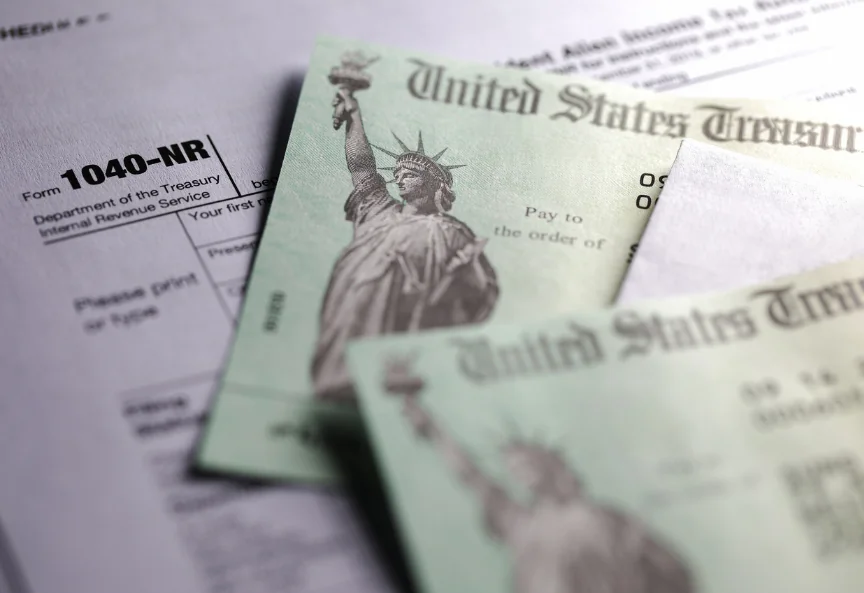Let's start by getting right to the meat of it – the IRS never fully forgives a tax debt. Tax debt forgiveness does exist in cases of medical debt, consumer debt, and particular student loans – and although it was much easier before bankruptcy laws were massively altered in 2005, most debts could be significantly shortened, consolidated, and even wiped out by going bankrupt.
However, the IRS neither forgives nor forgets quickly, and it possesses the ability to pursue you for your debt even after you've lost everything and have nothing left to give – unless you take the appropriate steps to negotiate with them. Not all hope is lost if you owe the IRS money that you cannot afford to part with.
There are ways to reduce and even minimize your current tax liability. Depending on the circumstances, you can even get the IRS to agree to leave you alone for multiple years while you focus on rebuilding your finances and getting back on your feet. Your tax debt forgiveness options will greatly depend on your tax debt, what you owe, and what you own.
Tax Debt Forgiveness Through Error
While the IRS does not forgive legitimate tax debt, it's still an organization made up of humans who make mistakes. Suppose the IRS made a mistake in your case, and you have the means to prove that you do not owe a tax debt. In that case, your first response to any notice of debt or unpaid tax should be to contact a legal representative and get started on appealing against the IRS' decision to mark you for the outstanding tax liability.
If the IRS did make a mistake, they would rescind their judgment, and you won't owe anything. It always helps to double-check that the basis of the IRS' determination is correct – no matter how slight the chance might be, your "easiest" way out of debt with the IRS is to prove them wrong.
However, should you try to prove them wrong without evidence or intentionally mislead the IRS, you may end up in a much more difficult situation than you started, including potential fraud charges. That is why seeking a legal professional's advice is crucial to ensure you have everything you need to get your debt rescinded.
Innocent Spouse Relief
One other option in limited situations is to provide ample proof that the IRS' basis for your joint tax debt, in the case of a married couple filing jointly, only applies to one person in the marriage and that you knew nothing and were not involved. Innocent spouse relief is not a matter of course. There are multiple requirements to meet, and the IRS may launch a rigorous investigation to ensure that you meet them. They include:
- Establishing (through a lawyer and a binding statement) that you did not know and had no reason to know that your spouse understated the tax when your return was filed.
- Attesting that it would be unfair to hold you liable for the understatement of tax, per the IRS' Indications of Unfairness.
- Ensuring that neither you nor your spouse has transferred the property to each other as part of a fraudulent scheme.
Even if you do not qualify for complete debt relief, you may qualify for partial relief if it can only be established that you did not know of some of the errors on the return.
Making an Offer in Compromise
If you cannot prove the IRS wrong, and if you cannot blame your spouse or ex-spouse, your options are severely limited. In general, the debt you owe cannot disappear. But it can be reduced. The IRS has no use for a debt they cannot collect on. And like other debts, federal tax debt has an expiration date.
As established by the collection statute of limitations, or the collection statute expiration date (CSED), the IRS can only pursue a tax debt for ten years from the date of its assessment (noted on the first notice you receive regarding your underpayment of taxes), plus any applicable tolling periods.
Tolling periods are any timeframe wherein the IRS cannot reasonably collect money from you. For example, if you are in the middle of a bankruptcy proceeding, the IRS will tally the time you've spent going through bankruptcy plus about six months after the end of the proceedings and add that time to your total tax debt expiration. Other reasons to extend the expiration date include the following:
- Spending a lot of time overseas.
- Being on active duty overseas.
- Being currently not collectible.
Nevertheless, there is an expiration date on that debt. And the IRS has an obligation to be fair towards taxpayers, as per the taxpayer's bill of rights. To that end, you can convince the IRS that, even with a long-term monthly payment plan, your current financial situation cannot reasonably allow you to pay off the debt you've accumulated (given penalties and interest) before the tax debt expires, or 72 months, whichever is sooner.
This leads us to an offer in compromise. An offer in compromise can be made through Form 433-A (OIC) and Form 656, providing the IRS a thorough overview of your financial situation, as well as a suggested monthly payment plan that you must come up with.
The IRS will consider this plan and determine whether it matches their own calculated reasonable collection potential (RCP), as per the data you've provided. If it does not, your offer is rejected, and you must try again. The IRS will continue to apply any liens and applicable penalties or interest during this period. Working with a professional when trying to utilize an offer in compromise is highly recommended to improve your chances of getting accepted.
Becoming Currently Non-Collectible
When all other options are out of reach, you have one more tax debt forgiveness option to keep the IRS off your back, for now: becoming currently non-collectible. This will not stop the IRS from issuing a lien. Still, it does halt levies, and – as long as your finances continue to qualify for the status – it lets you focus on saving money and improving your material situation without immediately worrying about your tax debt, like a debt deferral.
Do Not Delay Your Tax Debt
One of the IRS' strengths in pursuing tax debts is that they have a lot of tools at their disposal and the government's backing. The IRS can also be relentless, and tax debt is not easily washed away. Your best option is to deal with the debt immediately before the IRS can pile on penalties and incur hefty interest rates. Time is of the essence. Get in touch with us to start working on your tax debt case.











